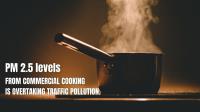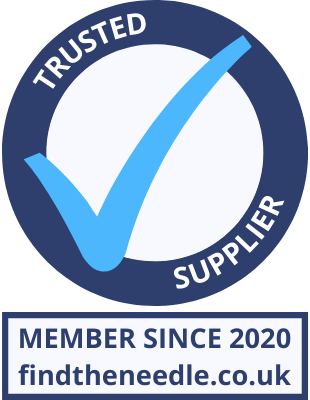 Add My Company
Add My Company
Sign In

Most of us have a favourite food smell. Maybe yours is a freshly baked pastry or maybe a nice kebab. These smells trigger us especially when we are hungry and give us a pleasant feeling. But do you know that you inhale harmful fine particles along with?
The thing is that we inhale these particles from commercial cooking whether we get the smell of the food or not. So we are not even aware of the pollution you are exposed to.
Problems were initially found with frying, barbecuing, grilling and charbroiling but we now know that other cooking methods are also implicated. Particle pollution from cooking was first identified in the air in London and Manchester about 10 years ago. Predictably, this was greatest at lunchtime and in the evenings; a phenomenon confirmed by more recent measurements.
Besides that particle pollution, a chemical called polycyclic aromatic hydrocarbon emerges as a result of contact of fats dripping from meat during cooking, with coal. This chemical rises into the air in the form of smoke, and people who breathe smoke inhale these toxic substances.
The Data
Recent studies in London have shown that fumes from commercial cooking overtaken traffic pollution as the source of PM2.5 pollution.
Recent figures released by the London Assembly show the amount of pollution from commercial food outlets has now overtaken traffic pollution – making up just over 20 per cent of all PM.2.5 emissions in the borough.
Dr David Green is a senior research fellow at King’s College London and an expert in the field of PM2.5 particles.
“The process of heating up food produces particles,” he explained.
“On a commercial or semi-industrial scale, you’re heating up a lot of oil. Those particles are then getting out of the commercial premises, possibly through ventilation systems for example.”
When we look at the number of businesses that emit particles such as cafes, restaurants, coffee shops, food factories, etc., the picture may seem a bit depressing. However, today’s technology offers solutions that will both protect the citizens and not bring economic and operational burdens to businesses.
So what is the solution for commercial cooking?
The ecology systems for commercial kitchen extraction solutions have been successfully used to capture these particles and prevent air pollution from commercial cooking fumes.
These ESP (Electrostatic Precipitator) applied filtration solutions are specifically designed for the removal of smoke and oil particles from the air stream of commercial kitchen exhaust systems. In addition to removing particulate pollution, it also eliminates odour and makes businesses completely environmentally friendly.
The filters inside an ecology unit guarantee a constant filtration efficiency and, thanks to their high oil separation and accumulation ability, it provides significant energy savings and low pressure drop.
Running an environmentally friendly business is no longer expensive or difficult to operate. Modern technology offers us many possibilities and benefits. It is our choice to decide whether or not to consider these possibilities.
Sources:
London.gov.uk
For more information on Commercial Cooking is overtaking Traffic Pollution. talk to Ozcon Environmental Solutions
Enquire Now
List your company on FindTheNeedle.

